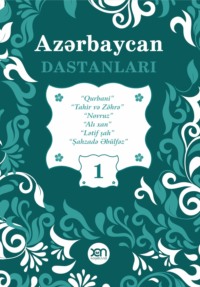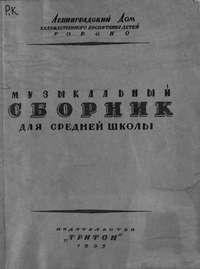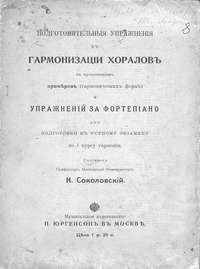 полная версия
полная версияA plain and literal translation of the Arabian nights entertainments, now entituled The Book of the Thousand Nights and a Night. Volume 7 (of 17)
She said, It hath reached me, O auspicious King, that when the two hosts drew apart, every one went to his tent until the morning. As soon as it was day, the two hosts mounted their strong steeds and levelled their lances and wore their harness of war; then they raised their slogan-cries and drew out in battle-array, whilst came forth all the lordly knights and the lions of fights. Now the first to open the gate of battle was Rustam, who urged his charger into mid-field and cried out, “God is most Great! I am Rustam champion-in-chief of the Arabs and Ajams. Who is for tilting, who is for fighting? Let no sluggard come out to me this day or weakling!” Then there rushed forth to him a champion of the Persians; the two charged each other and there befel between them a sore fight, till Rustam sprang upon his adversary and smote him with a mace he had with him, seventy pounds in weight, and beat his head down upon his breast, and he fell to the earth, dead and in his blood drowned. This was no light matter to Sabur and he commanded his men to charge; so they drave at the Moslems, invoking the aid of the light-giving Sun, whilst the True Believers called for help upon the Magnanimous King. But the Ajams, the Miscreants, outnumbered the Arabs, the Moslems, and made them drain the cup of death; which when Gharib saw he drew his sword Al-Mahik and crying out his war-cry, fell upon the Persians, with Kaylajan and Kurajan at either stirrup; nor did he leave playing upon them with blade till he hewed his way to the standard-bearer and smote him on the head with the flat of his sword, whereupon he fell down in a fainting-fit and the two Marids bore him off to their camp. When the Persians saw the standard fall, they turned and fled and for the city-gates made; but the Moslems followed them with the blade and they crowded together to enter the city, so that they could not shut the gates and there died of them much people. Then Rustam and Sa’adan, Jamrkan and Sahim, Al-Damigh, Kaylajan and Kurajan and all the braves Mohammedan and the champions of Faith Unitarian fell upon the misbelieving Persians in the gates, and the blood of the Kafirs ran in the streets like a torrent till they threw down their arms and harness and called out for quarter; whereupon the Moslems stayed their swords from the slaughter and drove them to their tents, as one driveth a flock of sheep. Meanwhile Gharib returned to his pavilion, where he doffed his gear and washed himself of the blood of the Infidels; after which he donned his royal robes and sat down on his chair of estate. Then he called for the King of the Persians and said to him, “O dog of the Ajams, what moved thee to deal thus with thy daughter? How seest thou me unworthy to be her baron?” And Sabur answered, saying, “O King, punish me not because of that deed which I did; for I repent me and confronted thee not in fight but in my fear of thee.”64 When Gharib heard these words he bade throw him flat and beat him. So they bastinadoed him, till he could no longer groan, and cast him among the prisoners. Then Gharib expounded Al-Islam to the Persians and one hundred and twenty thousand of them embraced The Faith, and the rest he put to the sword. Moreover all the citizens professed Al-Islam and Gharib mounted and entered in great state the city Isbanir al-Madain. Then he went into the King’s palace and sitting down on Sabur’s throne, gave robes and largesse and distributed the booty and treasure among the Arabs and Persians, wherefore they loved him and wished him victory and honour and endurance of days. But Fakhr Taj’s mother remembered her daughter and raised the voice of mourning for her, and the palace was filled with wails and cries. Gharib heard this and entering the Harim, asked the women what ailed them, whereupon the Princess’s mother came forward and said, “O my lord, thy presence put me in mind of my daughter and how she would have joyed in thy coming, had she been alive and well.” Gharib wept for her and sitting down on his throne, called for Sabur, and they brought him stumbling in his shackles. Quoth Gharib to him, “O dog of the Persians, what didst thou do with thy daughter?” “I gave her to such an one and such an one,” quoth the King, “saying:—Drown her in the river Jayhún.” So Gharib sent for the two men and asked them, “Is what he saith true?” Answered they, “Yes; but, O King, we did not drown her, nay we took pity on her and left her on the banks of the Jayhun, saying:—Save thyself and return not to the city, lest the King slay thee and slay us with thee. This is all we know of her.”–And Shahrazad perceived the dawn of day and ceased to say her permitted say.
Now when it was the Six Hundred and Seventieth Night,She continued, It hath reached me, O auspicious King, that the two men ended the tale of Fakhr Taj with these words, “And we left her upon the bank of the river Jayhun!” Now, when Gharib heard this he bade bring the astrologers and said to them, “Strike me a board of geomancy and find out what is come of Fakhr Taj, and whether she is still in the bonds of life or dead.” They did so and said, “O King of the age, it is manifest to us that the Princess is alive and hath borne a male child; but she is with a tribe of the Jinn, and will be parted from thee twenty years; count, therefore, how many years thou hast been absent in travel.” So he reckoned up the years of his absence and found them eight years and said, “There is no Majesty and there is no Might save in Allah, the Glorious, the Great!”65 Then he sent for all Sabur’s Governors of towns and strongholds and they came and did him homage. Now one day after this, as he sat in his palace, behold, a cloud of dust appeared in the distance and spread till it walled the whole land and darkened the horizon. So he summoned the two Marids and bade them reconnoitre, and they went forth under the dust cloud and snatching up a horseman of the advancing host, returned and set him down before Gharib, saying, “Ask this fellow, for he is of the army.” Quoth Gharib, “Whose power is this?” and the man answered, “O King, ’tis the army of Khirad Shah,66 King of Shiras, who is come forth to fight thee.” Now the cause of Khirad Shah’s coming was this. When Gharib defeated Sabur’s army, as hath been related, and took him prisoner, the King’s son fled, with a handful of his father’s force and ceased not flying till he reached the city of Shiras, where he went into King Khirad Shah and kissed ground before him, whilst the tears ran down his cheeks. When the King saw him in this case, he said to him, “Lift thy head, O youth, and tell me what maketh thee weep.” He replied, “O King, a King of the Arabs, by name Gharib, hath fallen on us and captured the King my sire and slain the Persians making them drain the cup of death.” And he told him all that had passed from first to last. Quoth Khirad Shah, “Is my wife67 well?” and quoth the Prince, “Gharib hath taken her.” Cried the King “As my head liveth, I will not leave a Badawi or a Moslem on the face of the earth!” So he wrote letters to his Viceroys, who levied their troops and joined him with an army which when reviewed numbered eighty-five thousand men. Then he opened his armouries and distributed arms and armour to the troops, after which he set out with them and journeyed till he came to Isbanir, and all encamped before the city-gate. Hereupon Kaylajan and Kurajan came in to Gharib and kissing his knee, said to him, “O our Lord, heal our hearts and give us this host to our share.” And he said, “Up and at them!” So the two Marids flew aloft high in the lift and lighting down in the pavilion of the King of Shiras, found him seated on his chair of estate, with the Prince of Persia, Ward Shah son of Sabur, sitting on his right hand, and about him his Captains, with whom he was taking counsel for the slaughter of the Moslems. Kaylajan came forward and caught up the Prince and Kurajan snatched up the King and the twain flew back with them to Gharib, who caused beat them till they fainted. Then the Marids returned to the Shirazian camp and, drawing their swords, which no mortal man had strength to wield, fell upon the Misbelievers and Allah hurried their souls to the Fire and abiding-place dire, whilst they saw no one and nothing save two swords flashing and reaping men, as a husbandman reaps corn. So they left their tents and mounting their horses bare-backed, fled; and the Marids pursued them two days and slew of them much people; after which they returned and kissed Gharib’s hand. He thanked them for the deed they had done and said to them, “The spoil of the Infidels is yours alone: none shall share with you therein.” So they called down blessings on him and going forth, gathered the booty together and abode in their own homes. On this wise it fared with them; but as regards Gharib and his lieges,–And Shahrazad perceived the dawn of day and ceased saying her permitted say.
Now when it was the Six Hundred and Seventy-first Night,She resumed, It hath reached me, O auspicious King, that after Gharib had put to flight the host of Khirad Shah, he bade Kaylajan and Kurajan take the spoil to their own possession nor share it with any; so they gathered the booty and abode in their own homes. Meanwhile the remains of the beaten force ceased not flying till they reached the city of Shiras and there lifted up the voice of weeping and began the ceremonial lamentations for those of them that had been slain. Now King Khirad Shah had a brother Sírán the Sorcerer hight, than whom there was no greater wizard in his day, and he lived apart from his brother in a certain stronghold, called the Fortalice of Fruits,68 in a place abounding in trees and streams and birds and blooms, half a day’s journey from Shiras. So the fugitives betook them thither and went in to Siran the Sorcerer, weeping and wailing aloud. Quoth he, “O folk, what garreth you weep?” and they told him all that had happened, especially how the two Marids had carried off his brother Khirad Shah; whereupon the light of his eyes became night and he said, “By the virtue of my faith, I will certainly slay Gharib and all his men and leave not one alive to tell the tale!” Then he pronounced certain magical words and summoned the Red King, who appeared and Siran said to him, “Fare for Isbanir and fall on Gharib, as he sitteth upon his throne.” Replied he, “Hearkening and obedience!” and, gathering his troops, repaired to Isbanir and assailed Gharib, who seeing him, drew his sword Al-Mahik and he and Kaylajan and Kurajan fell upon the army of the Red King and slew of them five hundred and thirty and wounded the King himself with a grievous wound; whereupon he and his people fled and stayed not in their flight, till they reached the Fortalice of Fruits and went into Siran, crying out and exclaiming, “Woe!” and “Ruin!” And the Red King said to Siran, “O sage, Gharib hath with him the enchanted sword of Japhet son of Noah, and whomsoever he smiteth therewith he severeth him in sunder, and with him also are two Marids from Mount Caucasus, given to him by King Mura’ash. He it is who slew the blue King and Barkan Lord of the Carnelian City, and did to death much people of the Jinn.” When the Enchanter heard this, he said to the Red King, “Go,” and he went his ways; whereupon he resumed his conjurations, and calling up a Marid, by name Zu’ázi’a gave him a drachm of levigated Bhang and said to him, “Go thou at Isbanir, and enter King Gharib’s palace and assume the form of a sparrow. Wait till he fall and there be none with him; then put the Bhang up his nostrils and bring him to me.” “To hear is to obey,” replied the Marid and flew to Isbanir, where, changing himself into a sparrow, he perched on the window of the palace and waited till all Gharib’s attendants retired to their rooms and the King himself slept. Then he flew down and going up to Gharib, blew the powdered Bhang into his nostrils, till he lost his senses, whereupon he wrapped him in the bed-coverlet and flew off with him, like the storm-wind, to the Fortalice of Fruits; where he arrived at midnight and laid his prize before Siran. The Sorcerer thanked him and would have put Gharib to death, as he lay senseless under Bhang; but a man of his people withheld him saying, “O Sage, an thou slay him, his friend King Mura’ash will fall on us with all his Ifrits and lay waste our realm.” “How then shall we do with him?” asked Siran, and the other answered, “Cast him into the Jayhun while he is still in Bhang and he shall be drowned and none will know who threw him in.” And Siran bade the Marid take Gharib and cast him into Jayhun river.–And Shahrazad perceived the dawn of day and ceased to say her permitted say.
Now when it was the Six Hundred and Seventy-second Night,She resumed, It hath reached me, O auspicious King, that the Marid took Gharib and carried him to the Jayhun purposing to cast him therein, but it was grievous to him to drown him, wherefore he made a raft of wood and binding it with cords, pushed it out (and Gharib thereon) into the current, which carried it away. Thus fared it with Gharib; but as regards his people, when they awoke in the morning and went in to do their service to their King, they found him not and seeing his rosary on the throne, awaited him awhile, but he came not. So they sought out the head Chamberlain and said to him, “Go into the Harim and look for the King: for it is not his habit to tarry till this time.” Accordingly, the Chamberlain entered the Serraglio and enquired for the King, but the women said, “Since yesterday we have not seen him.” Thereupon he returned and told the Officers, who were confounded and said, “Let us see if he have gone to take his pleasure in the gardens.” Then they went out and questioned the gardeners if they had seen the King, and they answered, “No;” whereat they were sore concerned and searched all the garths till the end of the day, when they returned in tears. Moreover, the two Marids sought for him all round the city, but came back after three days, without having happened on any tidings of him. So the people donned black and made their complaint to the Lord of all worshipping men who doth as he is fain. Meanwhile, the current bore the raft along for five days till it brought it to the salt sea, where the waves disported with Gharib and his stomach, being troubled, threw up the Bhang. Then he opened his eyes and finding himself in the midst of the main, a plaything of the billows, said, “There is no Majesty and there is no Might save in Allah, the Glorious, the Great! Would to Heaven I wot who hath done this deed by me!” Presently as he lay, perplexed concerning his case, lo! he caught sight of a ship sailing by and signalled with his sleeve to the sailors, who came to him and took him up, saying, “Who art thou and whence comest thou?” He replied, “Do ye feed me and give me to drink, till I recover myself, and after I will tell you who I am.” So they brought him water and victual, and he ate and drank and Allah restored to him his reason. Then he asked them, “O folk, what countrymen are ye and what is your Faith?;” and they answered, “We are from Karaj69 and we worship an idol called Minkásh.” Cried Gharib, “Perdition to you and your idol! O dogs, none is worthy of worship save Allah who created all things, who saith to a thing Be! and it becometh.” When they heard this, they rose up and fell upon him in great wrath and would have seized him. Now he was without weapons, but whomsoever he struck, he smote down and deprived of life, till he had felled forty men, after which they overcame him by force of numbers and bound him fast, saying, “We will not slay him save in our own land, that we may first show him to our King.” Then they sailed on till they came to the city of Karaj.–And Shahrazad perceived the dawn of day and ceased saying her permitted say.
Now when it was the Six Hundred and Seventy-third Night,She pursued, It hath reached me, O auspicious King, that when the ship’s crew seized Gharib and bound him fast they said, “We will not slay him save in our own land.” Then they sailed on till they came to the city of Karaj, the builder whereof was an Amalekite, fierce and furious; and he had set up at each gate of the city a magical figure of copper which, whenever a stranger entered, blew a blast on a trumpet, that all in the city heard it and fell upon the stranger and slew him, except they embraced their creed. When Gharib entered the city, the figure stationed at the gate blew such a horrible blast that the King was affrighted and going into his idol, found fire and smoke issuing from its mouth, nose and eyes. Now a Satan had entered the belly of the idol and speaking as with its tongue, said, “O King, there is come to thy city one hight Gharib, King of Al-Irak, who biddeth the folk quit their belief and worship his Lord; wherefore, when they bring him before thee, look thou spare him not.” So the King went out and sat down on his throne; and presently, the sailors brought in Gharib and set him before the presence, saying, “O King, we found this youth shipwrecked in the midst of the sea, and he is a Kafir and believeth not in our gods.” Then they told him all that had passed and the King said, “Carry him to the house of the Great Idol and cut his throat before him, so haply our god may look lovingly upon us.” But the Wazir said, “O King, it befitteth not to slaughter him thus, for he would die in a moment: better we imprison him and build a pyre of fuel and burn him with fire.” Thereupon the King commanded to cast Gharib into gaol and caused wood to be brought, and they made a mighty pyre and set fire to it, and it burnt till the morning. Then the King and the people of the city came forth and the Ruler sent to fetch Gharib; but his lieges found him not; so they returned and told their King who said, “And how made he his escape?” Quoth they, “We found the chains and shackles cast down and the doors fast locked.” Whereat the King marvelled and asked, “Hath this fellow to Heaven up flown or into the earth gone down?;” and they answered, “We know not.” Then said the King, “I will go and question my God, and he will inform me whither he is gone.” So he rose and went in, to prostrate himself to his idol, but found it not and began to rub his eyes and say, “Am I in sleep or on wake?” Then he turned to his Wazir and said to him, “Where is my God and where is my prisoner? By my faith, O dog of Wazirs, haddest thou not counselled me to burn him, I had slaughtered him; for it is he who hath stolen my god and fled; and there is no help but I take blood-wreak of him!” Then he drew his sword and struck off the Wazir’s head. Now there was for Gharib’s escape with the idol a strange cause and it was on this wise. When they had shut him up in a cell adjoining the doomed shrine under which stood the idol, he rose to pray, calling upon the name of Almighty Allah and seeking deliverance of Him, to whom be honour and glory! The Marid who had charge of the idol and spoke in its name, heard him and fear got hold upon his heart and he said, “O shame upon me! Who is this seeth me while I see him not?” So he went in to Gharib and throwing himself at his feet, said to him, “O my Lord, what must I say that I may become of thy company and enter thy religion?” Replied Gharib, “Say:—There is no god but the God and Abraham is the Friend of God.” So the Marid pronounced the profession of Faith and was enrolled among the people of felicity. Now his name was Zalzál, son of Al-Muzalzil,70 one of the Chiefs of the Kings of the Jinn. Then he unbound Gharib and taking him and the idol, made for the higher air.–And Shahrazad perceived the dawn of day and ceased to say her permitted say.
Now when it was the Six Hundred and Seventy-fourth Night,She said, It hath reached me, O auspicious King, that the Marid took up Gharib and the idol and made for the higher air. Such was his case; but as regards the King, when his soldiers saw what had befallen and the slaughter of the Wazir they renounced the worship of the idol and drawing their swords, slew the King; after which they fell on one another, and the sword went round amongst them three days, till there abode alive but two men, one of whom prevailed over the other and killed him. Then the boys attacked the survivor and slew him and fell to fighting amongst themselves, till they were all killed; and the women and girls fled to the hamlets and forted villages; wherefore the city became desert and none dwelt therein but the owl. Meanwhile, the Marid Zalzal flew with Gharib towards his own country, the Island of Camphor and the Castle of Crystal and the Land of the Enchanted Calf, so called because its King Al-Muzalzil, had a pied calf, which he had clad in housings brocaded with red gold, and worshipped as a god. One day the King and his people went in to the calf and found him trembling; so the King said, “O my God, what hath troubled thee?” whereupon the Satan in the calf’s belly cried out and said, “O Muzalzil, verily thy son hath deserted to the Faith of Abraham the Friend, at the hands of Gharib Lord of Al-Irak;” and went on to tell him all that had passed from first to last. When the King heard the words of his calf he was confounded and going forth, sat down upon his throne. Then he summoned his Grandees who came in a body, and he told them what he had heard from the idol, whereat they marvelled and said, “What shall we do, O King?” Quoth he, “When my son cometh and ye see him embrace him, do ye lay hold of him.” And they said, “Hearkening and obedience!” After two days came Zalzal and Gharib, with the King’s idol of Karaj, but no sooner had they entered the palace-gate than the Jinn seized on them and carried them before Al-Muzalzil, who looked at his son with eyes of ire and said to him, “O dog of the Jann, hast thou left thy Faith and that of thy fathers and grandfathers?” Quoth Zalzal, “I have embraced the True Faith, and on like wise do thou (Woe be to thee!) seek salvation and thou shalt be saved from the wrath of the King Almighty in sway, Creator of Night and Day.” Therewith his father waxed wroth and said, “O son of adultery, dost confront me with these words?” Then he bade clap him in prison and turning to Gharib, said to him, “O wretch of a mortal, how hast thou abused my son’s wit and seduced him from his Faith?” Quoth Gharib, “Indeed, I have brought him out of wrongousness into the way of righteousness, out of Hell into Heaven and out of unfaith to the True Faith.” Whereupon the King cried out to a Marid called Sayyár, saying, “Take this dog and cast him into the Wady of Fire, that he may perish.” Now this valley was in the “Waste Quarter71” and was thus named from the excess of its heat and the flaming of its fire, which was so fierce that none who went down therein could live an hour, but was destroyed; and it was compassed about by mountains high and slippery wherein was no opening. So Sayyar took up Gharib and flew with him towards the Valley of Fire, till he came within an hour’s journey thereof, when being weary, he alighted in a valley full of trees and streams and fruits, and setting down from his back Gharib chained as he was, fell asleep for fatigue. When Gharib heard him snore, he strove with his bonds till he burst them; then, taking up a heavy stone, he cast it down on the Marid’s head and crushed his bones, so that he died on the spot. Then he fared on into the valley.–And Shahrazad perceived the dawn of day and ceased saying her permitted say.
Now when it was the Six Hundred and Seventy-fifth Night,She continued, It hath reached me, O auspicious King, that Gharib after killing the Marid fared on into the valley and found himself in a great island in mid-ocean, full of all fruits that lips and tongue could desire. So he abode alone on the island, drinking of its waters and eating of its fruits and of fish that he caught, and days and years passed over him, till he had sojourned there in his solitude seven years. One day, as he sat, behold, there came down on him from the air two Marids, each carrying a man; and seeing him they said, “Who art thou, O fellow, and of which of the tribes art thou?” Now they took him for a Jinni, because his hair was grown long; and he replied, saying, “I am not of the Jann,” whereupon they questioned him, and he told them all that had befallen him. They grieved for him and one of the Ifrits said, “Abide thou here till we bear these two lambs to our King, that he may break his fast on the one and sup on the other, and after we will come back and carry thee to thine own country.” He thanked them and said, “Where be the lambs?” Quoth they, “These two mortals are the lambs.” And Gharib said, “I take refuge with Allah the God of Abraham the Friend, the Lord of all creatures, who hath power over everything!” Then the Marids flew away and Gharib abode awaiting them two days, when one of them returned, bringing with him a suit of clothes wherewith he clad him. Then he took him up and flew with him sky-high out of sight of earth, till Gharib heard the angels glorifying God in heaven, and a flaming shaft issued from amongst them and made for the Marid, who fled from it towards the earth. The meteor pursued him, till he came within a spear’s cast of the ground, when Gharib leaped from his shoulders and the fiery shaft overtook the Marid, who became a heap of ashes. As for Gharib, he fell into the sea and sank two fathoms deep, after which he rose to the surface and swam for two days and two nights, till his strength failed him and he made certain of death. But, on the third day as he was despairing he caught sight of an island steep and mountainous; so he swam for it and landing, walked on inland, where he rested a day and a night, feeding on the growth of the ground. Then he climbed to the mountain top, and, descending the opposite slope, fared on two days till he came in sight of a walled and bulwarked city, abounding in trees and rills. He walked up to it; but, when he reached the gate, the warders seized on him, and carried him to their Queen, whose name was Ján Sháh.72 Now she was five hundred years old, and every man who entered the city, they brought to her and she made him sleep with her, and when he had done his work, she slew him and so had she slain many men. When she saw Gharib, he pleased her mightily; so she asked him, “What be thy name and Faith and whence comest thou?” and he answered, “My name is Gharib King of Irak, and I am a Moslem.” Said she, “Leave this Creed and enter mine and I will marry thee and make thee King.” But he looked at her with eyes of ire and cried, “Perish thou and thy faith!” Cried she, “Dost thou blaspheme my idol, which is of red carnelian, set with pearls and gems?” And she called out to her men, saying, “Imprison him in the house of the idol; haply it will soften his heart.” So they shut him up in the domed shrine and locking the doors upon him, went their way.–And Shahrazad perceived the dawn of day and ceased to say her permitted say.









